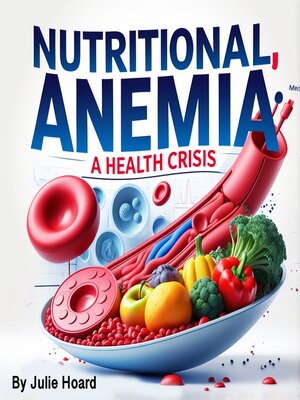
Sign up to save your library
With an OverDrive account, you can save your favorite libraries for at-a-glance information about availability. Find out more about OverDrive accounts.
Find this title in Libby, the library reading app by OverDrive.



Search for a digital library with this title
Title found at these libraries:
| Library Name | Distance |
|---|---|
| Loading... |
This audiobook is narrated by a digital voice.
Nutritional anemia is a condition where the body lacks sufficient healthy red blood cells to carry adequate oxygen to its tissues due to nutritional deficiencies. Anemia can arise from various causes, but when it is linked to diet and nutrient intake, it is referred to as nutritional anemia. This condition can significantly affect an individual's overall health, leading to fatigue, weakness, and impaired physical performance, among other symptoms.
The most common cause of nutritional anemia is iron deficiency, which is a crucial component of hemoglobin, the protein in red blood cells that binds to oxygen. Without enough iron, the body cannot produce enough healthy red blood cells, leading to anemia. Iron deficiency anemia is particularly prevalent in women of reproductive age, young children, and pregnant women due to their increased iron needs. Other nutrients, such as vitamin B12, folate, and copper, also play essential roles in the production of red blood cells, and deficiencies in these vitamins and minerals can lead to different forms of nutritional anemia.
Nutritional anemia is often characterized by symptoms like fatigue, pallor, dizziness, and shortness of breath. These symptoms can range from mild to severe, depending on the degree of deficiency. In many cases, individuals may not immediately recognize the symptoms, attributing them to stress, lack of sleep, or other health issues. This can delay diagnosis and treatment, leading to prolonged periods of anemia.







